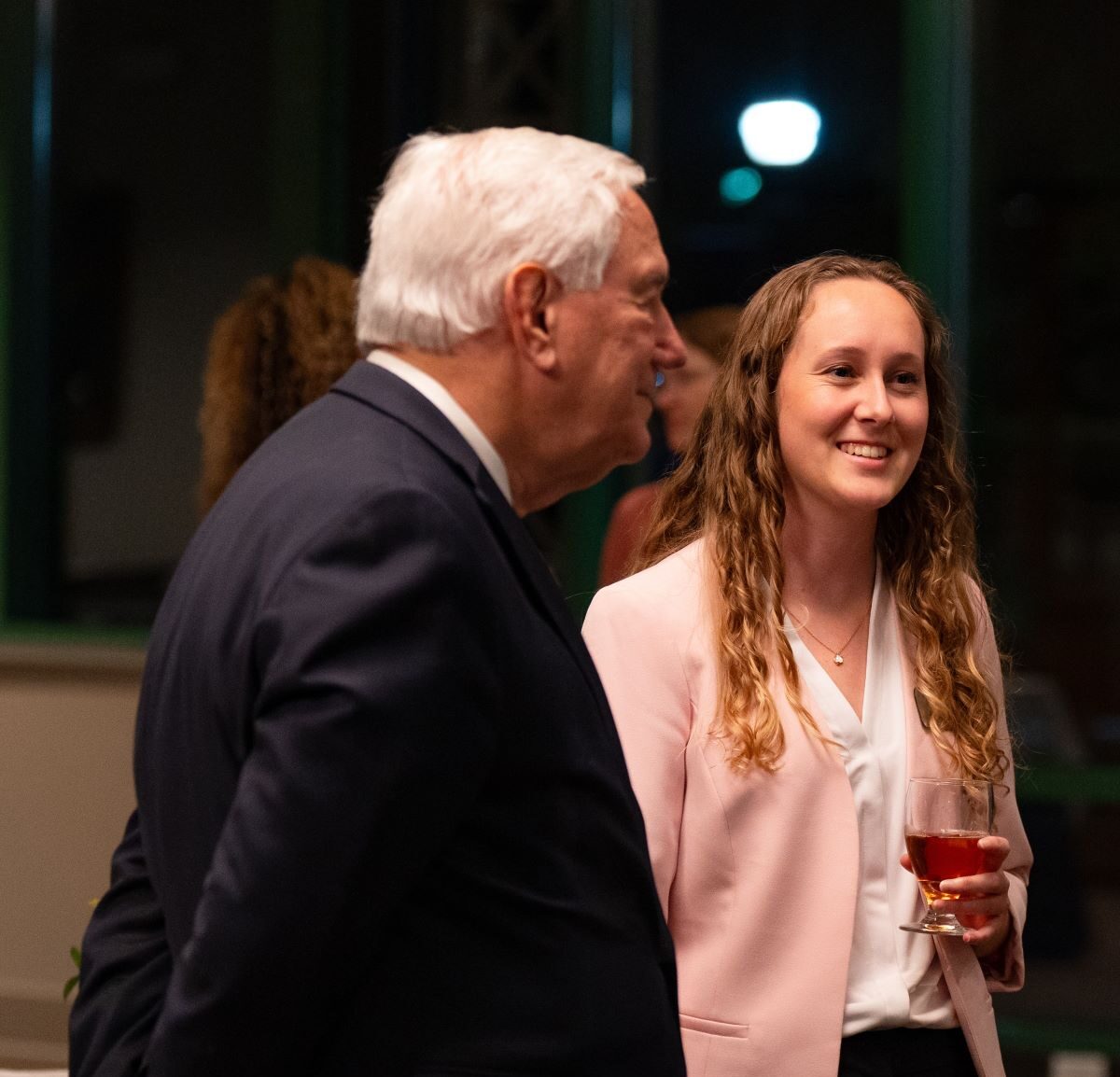Coming Full Circle: From Scholar to Scholars Coordinator
How Ali Collins ‘23 went from participating in the Community of Scholars summer program herself to helping design programming for the next generation of scholars
For Ali Collins ’23, her Furman experience has come full circle through her post-baccalaureate fellowship with the Riley Institute, where she currently serves as the scholars coordinator. When Collins kicked off her Furman studies in summer 2019, her very first campus experience was participating in the Riley Institute’s Advantage Scholars Summer Program, a three-day residential program open to all incoming scholars.
“The program was a really good mix of diving in on social justice issues, but also having fun with the other students,” says Collins. “One minute we were talking about poverty, public education, and healthcare, and the next minute we were playing icebreaker games in the science center. It was a really good introduction to this group of fellow scholars, and I also got to learn a lot about Greenville and how it’s affected by critical issues like gentrification.”
Now, in her one-year fellowship role, Collins’s job is to carry that feeling of camaraderie forward for the wider Community of Scholars at Furman—that is, anyone attending Furman on a Duke, Townes, Hollingsworth, Jolley, Lay, Mickel, or Vaughn Scholarship.
“My job is building the programming for the scholars. In my own experience, I always wanted there to be more opportunities to interact with fellow scholars after participating in Advantage Scholars,” says Collins. “Now I’m working on the social and the intellectual components of the Community of Scholars—helping foster a community mindset that enhances their scholarship.”
Under the guidance of the Riley Institute’s now-retired Director of the Center for Critical Issues Jill Fuson and Community of Scholars faculty coordinator Dr. Scott Henderson, Collins has organized several events to date, ranging from a casual ice cream social to a service project to a design thinking workshop with the Hill Institute. Some activities have been better received by current scholars than others, but that’s part of the fun of being in this new role.
“When I was interviewing, the discussion was that no one knew what this programming was going to look like yet, because this position has never existed,” shares Collins. “I have a lot of freedom to try out a variety of different ideas. I hope that this first year of testing things out lends itself to even stronger programming and community under my successor.”
Beyond the creative freedom that comes with designing programming from scratch, Collins has experienced other benefits from her post-bac fellowship. She was instrumental in planning and supporting the October 2023 China’s Global Rise conference, with over 200 people in attendance. Collins got a behind-the-scenes look at what it takes to put on professional events, and throughout her time at the Riley Institute, she has learned to adapt, adjust, and pick up new skills along the way.
Further, Collins has relished the opportunity to deepen her knowledge on education policy, one of the Riley Institute’s key pillars. Collins plans to return to her native California this fall to teach middle school math, with aspirations to eventually work in education policy.
Perhaps best of all, through this role, Collins has had an opportunity to grow professionally in a place she calls home, and to hopefully shape Furman in lasting ways.
“It’s a good first job where I’m seeing things happen in the real world in a real organization, but I’m at a place that I’m familiar with. It’s still Furman—I know this place and these people,” says Collins. “I attended an event where a graduating senior said, ‘Not only does Furman shape their students, but the students shape Furman.’ My hope is that what I’m working on at the Riley Institute will make Furman more competitive compared to other schools offering these top performers scholarships, because they’ll see that there’s a wider intellectual community and programming to foster that available to them if they choose to study here.”
